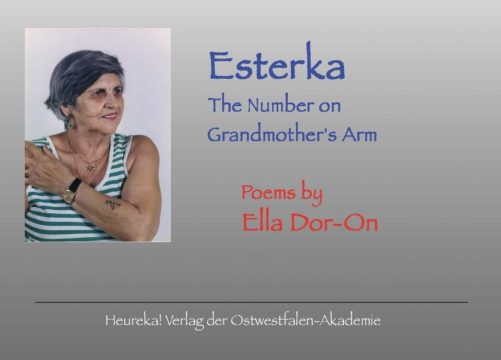Preface by the Publisher
In autumn 2017 I had a telephone call from my good old friend
Eckart Koellreutter. He told me about his excellent idea to write
about his relatives’ involvement in the terrible World Wars of the last
century. I instantly found his suggestion exiting because I myself
had had the same thoughts years earlier but never found enough
courage to realize them. So we started to write down some kind of
reflections about what had been on our minds for so long.
My dear mother Gisela Guss (Wichmann by maiden name) had often
told me about her friend Lieselotte Tuengerthal who was “picked
up” one day by the Nazis – “abgeholt”, what a terrible word! I came
12
across a picture of a woman who I assumed was Lieselotte
Tuengerthal and thought about visiting a synagogue, simply holding
her picture in my hand, praying for her and asking forgiveness
for the atrocities my nation had committed.
Eckart supported my plan. I looked for a synagogue and found one
in the city of Paderborn. There I met a friendly man called Alexander
Kogan. He told me a lot about the history of the Jews in Paderborn
and asked me to read a poem titled “The number on Grandmother’s
arm” which had been written by his cousin Ella Dor-On.
Later, he sent me all the other poems written by the poetess. I was
convinced:
I had to get them published!
13
My father Kurt Guss, a “Kriegsfreiwilliger” (war volunteer), was
killed in action in Russia two months before my birth. My mother’s
brother, Berthold Wichmann, was put into “Frontbewährung” (service
on the front) and never returned. My mother’s heart was broken
by these events and she never really recovered since. My own
life was indeed deeply affected by her suffering and her subsequent
untimely death. No day goes by without thinking of her and
the tragic history of my family. I cannot forget. Why did all that happen?
And: will we ever be allowed to forget these terrible events –
to let the past be the past?
“One had to forget – because one could not live with the thought
that this graceful, fragile, tender young woman with those eyes,
that smile, those gardens and snows in the background, had been
14
brought in a cattle-train to an extermination camp and killed by an
injection of phenol into the heart, into the gentle heart one had
heard beating under one’s lips in the dust of the past. And since
the exact form of her death had not been recorded, Mira kept dying
a great number of deaths in one’s mind, and undergoing a great
number of resurrections, only to die again and again, led away by a
trained nurse, inoculated with filth, tetanus bacilli, broken glass,
gassed in a sham shower-bath with prussic acid, burned alive in a
pit on a gasoline-soaked pile of beechwood. According to the investigator,
Pnin had happened to talk to in Washington, the only
certain thing was that being too weak to work (though still smiling,
still able to help other Jewish women), she was selected to die and
was cremated only a few days after her arrival in Buchenwald, in the
15
beautiful wooded ‚Grosser Ettersberg‘, as the region is resoundingly
called. It is an hour’s stroll from Weimar, where Goethe,
Herder, Schiller, Wieland, the inimitable Kotzebue and others used
to walk.”1
Nabokow starts with “One had to forget”. Nabokow’s “One had to
forget”, obviously means: “One would like to forget but one must
not forget!”. This also reminds me of the last sentences of Samuel
Beckett’s “The Unnamable”: „I can’t go on. I’ll go on.”2 Precisely the
same attitude was the reason for publishing this book.
I wish to express my gratitude to my friend Alexander Kogan who
encouraged me to publish this book and to my friend Ella Dor-On
1 W. Nabokow, Pnin, Penguin, London 2016, p. 117 f. [1957.]
2 S. Beckett, The Unnamable, Olympia Press, Paris 1958.
16
for her permission to do so. I would like to say Thank you to
Gerlind Koellreutter and her daughter Friederike Schoonhoven,
who were a great help with the correction work. G-d bless them
and G-d bless Eckart Koellreutter and all the other friends listed
above, who contributed with donations to always remember those
events that we must never forget although one had to forget.
Bühne, Spring 2019 Prof. Dr. mult. Kurt Guss
- Veröffentlicht am Montag 1. Juli 2019 von Verlag der Ostwestfalen-Akademie
- ISBN: 9783947435197
- 120 Seiten
- Genre: Belletristik, Dramatik, Lyrik
